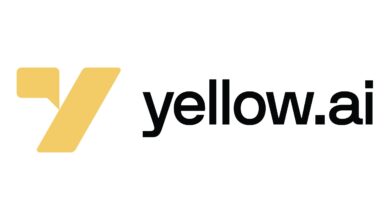Minimizing hallucinations in generative AI and large language models

Generative artificial intelligence (GenAI) dominated travel industry conversation in 2023, teasing a
promise to revolutionize the way we plan, book and experience travel. Across
both leisure and corporate travel, the race is on to implement GenAI in everything from consumer interfaces to back-end
operations. As the industry moves beyond the initial hype, 2024 is all about leveraging what has been learned so far to focus on the most
beneficial use cases – and avoid wasting resources on those without a clear return on investment.
As OpenAI (with the backing of Microsoft) and
its large language model (LLM) competitors (including Google, Amazon,
Anthropic, Perplexity, Cohere, Stability.ai and others) forge ahead in
developing more advanced LLMs, travel companies are in parallel accelerating
their own investments in GenAI implementations. But separating the winning use cases from
the rest is an ongoing process of trial and error. This report highlights the
key areas to watch in the near term, providing an overview of the GenAI initiatives travel companies have launched and lessons
learned in the past 18
months.
Hallucinations
Many business leaders have expressed particular concern about large
language model (LLM) hallucinations, which generate output that is factually
incorrect, irrelevant or unrelated to the prompt.
In perhaps the most high-profile
example so far of the real-world impact of incorrect information being provided
by a chatbot, Air Canada was in February 2024 ordered to pay compensation to a
customer who received inaccurate information from its bot. The case highlights
new potential gray areas of the law, as Air Canada argued that the bot was “a
separate legal entity” and “responsible for its own actions.”
Hallucinations can be minimized through various approaches, including prompt optimization, fine-tuning and retrieval augmented generation (RAG), the latter of which optimizes LLM responses via reference to an external knowledge base (e.g., a travel company database).
Subscribe to our newsletter below
RAG is a particularly important concept because a customer
inadvertently receiving bad information can damage hard-earned trust
instantaneously. On the other hand, travel companies are sitting on troves of
proprietary data about travelers’ intentions and desires, as well as
information about destinations, airports, airplanes, hotel properties, car
rental operations and cruise ships.
Certainly, LLMs level the playing field in terms of access to
powerful models for everyone big and small. But proprietary information is what
can make an implementation of GenAI stand apart and create competitive advantage by enhancing
the LLMs’ ability to answer detailed questions or provide specific services,
with increased accuracy, for each company’s unique product and customer base.
OpenAI’s GPTs are the easiest way to experiment with RAG
implementations, as they can augment the ChatGPT LLM with proprietary
information through the simple pasting of text content or uploading of files.
For more advanced implementations, it’s possible to call your own APIs via the GPTs Actions. For
OpenAI’s guide to building a GPT, click here. Related, OpenAI also offers
Assistants which work purely via API. There are plenty of other software
options in the marketplace, but OpenAI’s are some of the easiest to get started with.
Current limitations
Beyond hallucinations, it is imperative to
understand the current limitations of GenAI for travel applications; it is not (yet) a replacement for
machine learning, which should continue to be relied upon for high-stakes tasks
that require accuracy such as revenue management or demand prediction. GenAI is better thought of as a potential layer to help users
query or understand output from an AI-powered demand prediction system in
natural language.
When weighing any concerns, it’s important to keep in mind how fast the technology is evolving. It will continue to improve rapidly over time. So far, travelers appear to be somewhat leery of the information they are receiving; per preliminary data from Europe Consumer Travel Report 2024, only 32-37% of travelers say they trust results/answers from GenAI.
Data security
Given that LLMs learn and improve from their
training data, there have been palpable concerns about the sharing of sensitive
or valuable proprietary data. In response, OpenAI introduced ChatGPT Enterprise
in August 2023 and ChatGPT Team in January 2024, both of which promise not to
train their models on shared business data.



